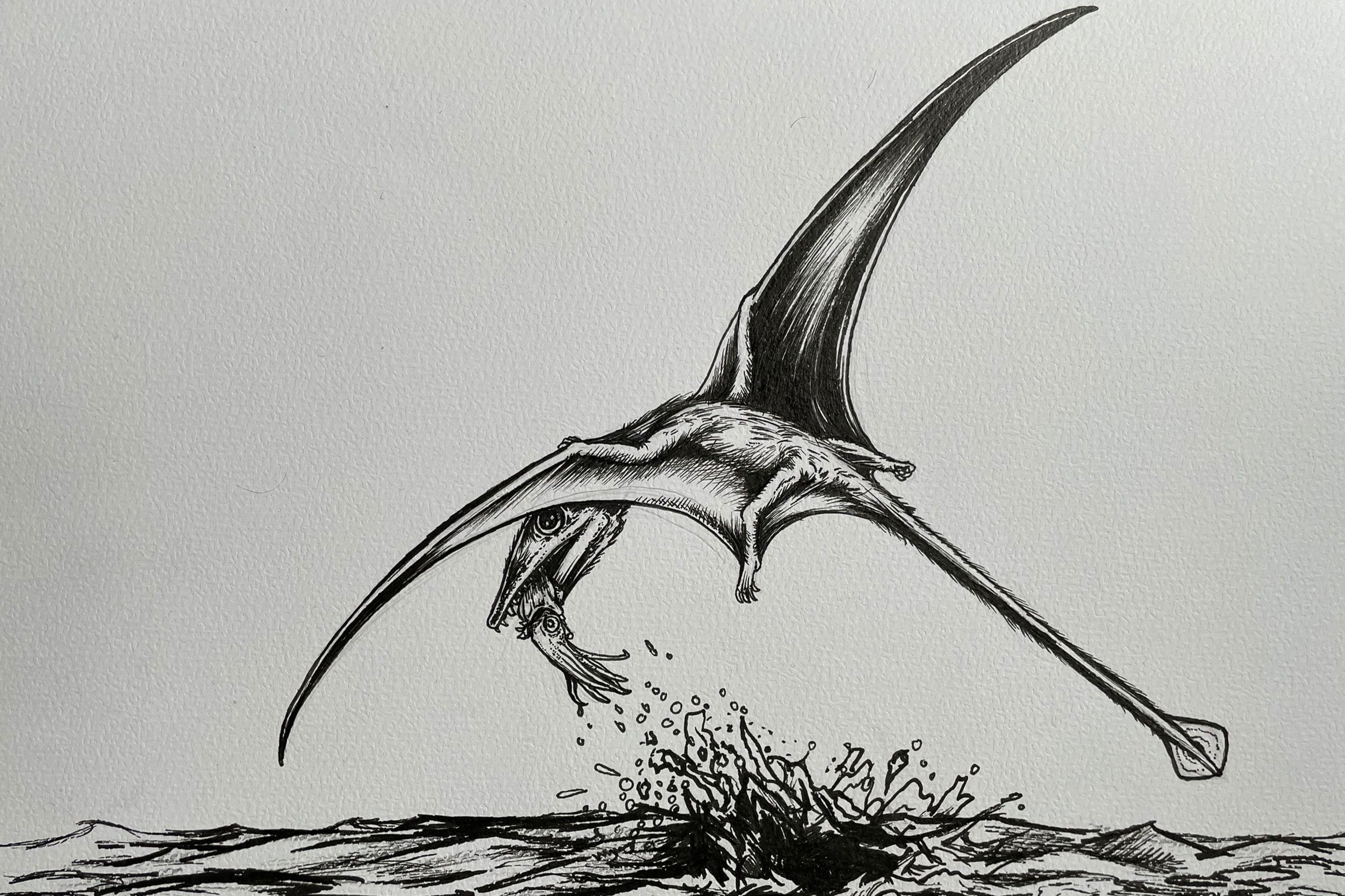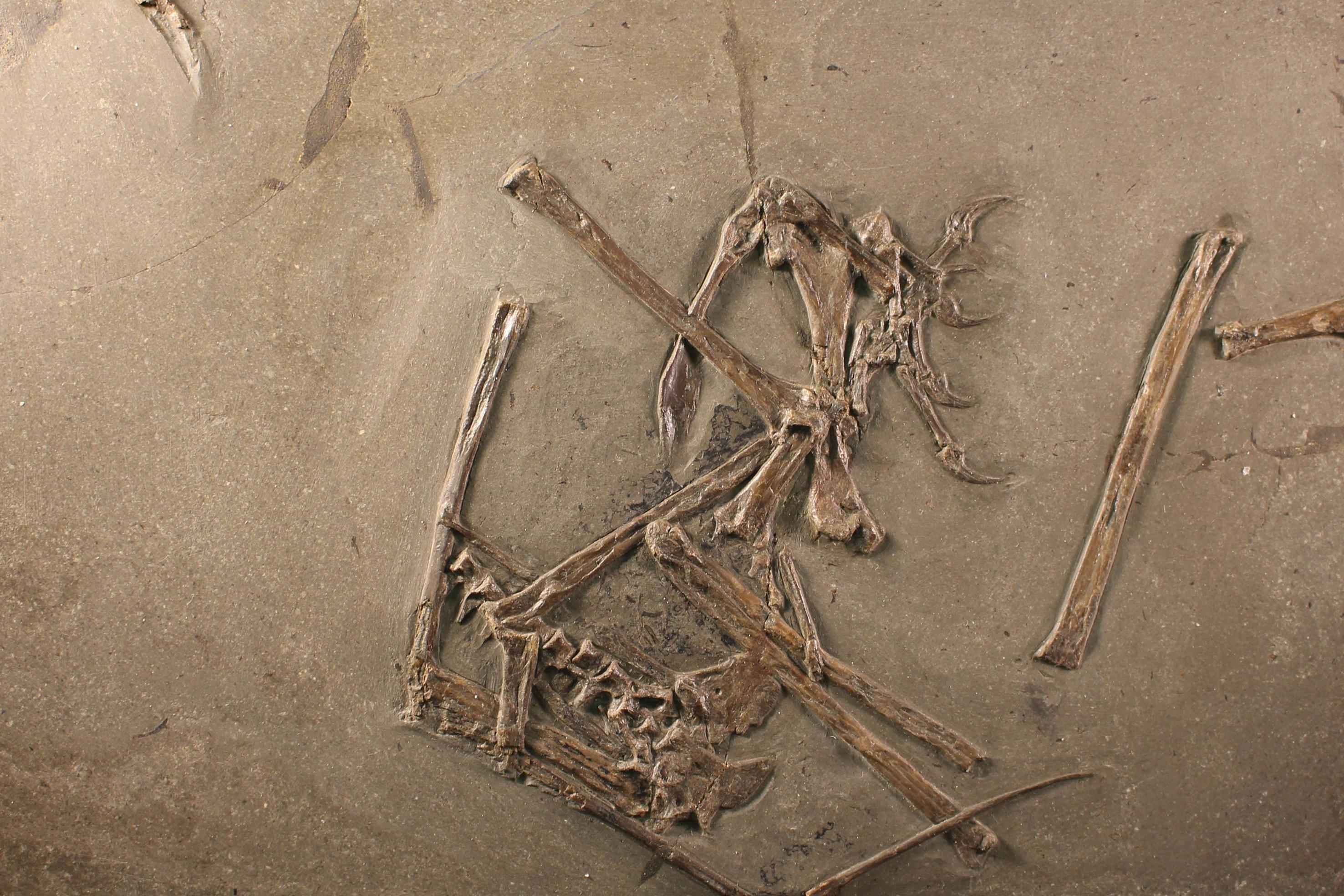Ancient flying reptiles survived on a diet rich in small fish and squid, scientific studies have found most recently.
Researcher Dr. Roy Smith stated that fossilized stomach contents were the “smoking gun” evidence for the types of diets.
Discoveries were made by researchers from the University of Portsmouth and the State Museum of Natural History Stuttgart in Germany and were published in the Journal of Vertebrate Paleontology.
Pterosaurs had existed 182 million years ago and had a maximum wingspan of as much as 12 meters (39 feet).
The team analyzed the fossilized stomach contents of two pterosaur species, Dorygnathus and Campylognathoides.
They inhabited the region of southwest Germany during the initial Jurassic period.
Researchers discovered that Dorygnathus consumed small fish as its last meal, in contrast, Campylognathoides dined on prehistoric squid prior to its death.

Professor Smith, from Portsmouth University’s School of Environment and Life Sciences, stated: “It is exceptionally rare to discover 180 million-year-old pterosaurs that have their digestive contents preserved, and this offers ‘smoking gun’ evidence for the diets of pterosaurs.
The find provides a remarkable and captivating view into the lives of these ancient beings, their dietary habits, and the environments they inhabited during their time millions of years ago.

According to Dr Samuel Cooper, a researcher at the University of Portsmouth, the stomach contents provided scientists with insight into “how the animals interacted with each other”.
He stated, “For me, to find evidence of squid remains in the stomach of campylognathoides is therefore particularly exciting.
Up until this point, we had generally presumed it relied on a diet of fish, akin to dorygnathus, where we identified small fish remains within its stomach contents.
It’s evident that these two pterosaur species had distinct feeding habits given that they consumed different types of prey.
The presence of campylognathoides provided dorygnathus with an opportunity to live in the same environment without facing significant competition from campylognathoides for food resources.
You can follow
South Today
on
Facebook
,
X (Twitter)
, or
Instagram
.




